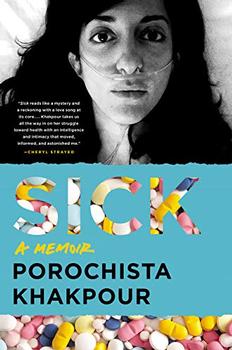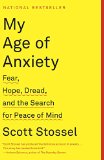Summary | Excerpt | Reviews | Beyond the book | Read-Alikes | Genres & Themes | Author Bio

A Memoir
by Kurt EichenwaldNew York Times journalist Kurt Eichenwald was diagnosed with epilepsy in November 1979 at the age of 18. At the time his doctor advised him, "Don't tell anyone about your diagnosis. If people know you have epilepsy, they'll be afraid. Seizures are frightening. If you tell people, you might lose friends or jobs." His latest book, A Mind Unraveled, is a memoir about the damage such advice caused him, the discrimination he endured when his condition became known, and how he fought to not only overcome the challenges facing him but to go on to become a Pulitzer Prize-nominated writer.
According to the Mayo Clinic, epilepsy is a neurological disorder "in which brain activity becomes abnormal, causing seizures or periods of unusual behavior, sensations, and sometimes loss of awareness." Most patients are able to get their seizures under control with medication, but each person is different, and the cause, treatment, and prognosis vary greatly. Although many options are available for treating people with epilepsy today, when Eichenwald was diagnosed less was known about the condition and fewer choices existed. Consequently, his grand mal seizures (characterized by loss of consciousness and violent muscle contractions) continued for years. He goes to great lengths in his memoir to outline just how severe his bouts became and the impact they had on those around him, such as his close friends who were torn between feeling willingly responsible for looking after him and exhausted by his unpredictable need for care.
Most of Eichenwald's narrative, though, explores how people who should have been protecting and helping him actually made things much more difficult. His father, a world-renowned specialist in pediatric infectious diseases, flat-out denied his son had epilepsy, referring to it instead as a "seizure disorder" and refusing to discuss it. Eichenwald's first neurologist was a researcher who rarely saw patients, and who brushed off Kurt's calls as his grand mal seizures became more frequent. His second doctor prescribed medications that nearly killed him. The administrators at his college, Swarthmore, sought – illegally – to expel him, going as far as actually fabricating reasons to keep him from returning to school. The list goes on, and it's hard to believe so many people could have been so incredibly close-minded and arrogant, either treating this young man as a problem or pretending everything was just fine.
As the memoir progresses, Eichenwald relates how the discrimination continued into his working life. (His reaction to the way he was treated at the Center for Study of Responsive Law, run by consumer advocate Ralph Nader, is priceless!) Nevertheless, his hard work, determination, and gifted writing ability allowed him to eventually land increasingly important positions. It wasn't until he made his condition known publicly, though – in a 1987 New York Times Magazine article – that he was able to work without fear that he'd be fired or otherwise have his opportunities limited by his malady.
It's tempting to think that Eichenwald's story is dated, that the bias and malpractice he endured isn't possible today; but epilepsy is still a poorly understood condition, and indeed it can still lead to discrimination. More importantly, though, there are others with different physical or emotional disorders who run into the same barriers; medicine may have changed, but many people haven't. This book is an eye-opening account that may lead others to reconsider their prejudices. And, as Eichenwald's PTSD psychologist, Scott Thornton, notes at the end of A Mind Unraveled, "Kurt's painful, triumphant ongoing story… offers both inspiration and practical guidance, not only for those who have epilepsy, but for anyone affected by trauma or abuse."
Eichenwald's prose is engaging, and the book is a fascinating and fast-paced read. I can think of many people I would recommend it to, and those who enjoy medical non-fiction, memoirs, or stories of success against all odds will certainly want to pick up a copy. Book groups, too, will find much to discuss within its pages.
![]() This review was originally published in The BookBrowse Review in January 2019, and has been updated for the
October 2019 edition.
Click here to go to this issue.
This review was originally published in The BookBrowse Review in January 2019, and has been updated for the
October 2019 edition.
Click here to go to this issue.

If you liked A Mind Unraveled, try these:

by Porochista Khakpour
Published 2018
A powerful, beautifully rendered memoir of chronic illness, misdiagnosis, addiction, and the myth of full recovery.

by Scott Stossel
Published 2015
A riveting, revelatory, and moving account of the author's struggles with anxiety, and of the history of efforts by scientists, philosophers, and writers to understand the condition.
Your guide toexceptional books
BookBrowse seeks out and recommends the best in contemporary fiction and nonfiction—books that not only engage and entertain but also deepen our understanding of ourselves and the world around us.